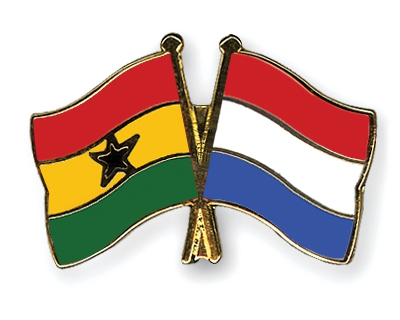 The Ghana Netherlands Business and Culture Council, a merger between The Ghana Netherlands Chamber of Commerce and Culture (GHANECC) and the Netherlands African Business Council (NABC), has been launched.
The Ghana Netherlands Business and Culture Council, a merger between The Ghana Netherlands Chamber of Commerce and Culture (GHANECC) and the Netherlands African Business Council (NABC), has been launched.
The Ghana Netherlands Chamber of Commerce and Culture was the agency that facilitated and supported business cooperation between Ghana and the Netherlands since its inception in 2002, fostering trade, investment and cultural understanding between the two countries.
The Netherlands African Business Council was a body of Dutch entrepreneurs founded in 1946 that also promoted Dutch trade and investment in Africa, providing business services to the Dutch business community in Africa.
Victor Rutgers, President of the newly launched GNBCC said: “The main objective of GNBCC is to facilitate and build upon these business relationships to the benefit of both Ghana and the Netherlands.”
In context of the Dutch embassy’s change of policy from aid to trade, he added that, the GNBCC would foster vibrant and symbiotic economic partnership between Ghana and the Netherlands.
“We are here to help the private sector businesses to develop and to do business at the same time”, Ms. Caecilia Wijgers, the Acting Ambassador of the Netherlands to Ghana said.
She also said that the Dutch were innovators who liked Public Private Partnerships (PPP).
“This means that there will be many opportunities for both Ghanaian and Dutch businesses through the Dutch financial instruments”, she added.
As part of its mandate to support corporate entities by providing regulatory, financial and business-related information to them, the GNBCC has also launched a book titled “Doing Business in Ghana.”
Vice President Kwesi Amissah-Arthur, who launched the Chamber, said fallen prices of Ghana’s main exports coupled with some shocks in 2012 led to fiscal imbalance in the economy.
The Vice President expressed the hope that the recent agreement between the government and the International Monetary Fund for an enhanced facility would help reverse the negative pressures and correct the imbalances.
Mr Amissah-Arthur said government was working to reduce the country’s large budget deficit through expenditure rationalisation and prioritisation, adding that, this was necessary to sustain the gains made in poverty reduction over the years.
Mr Amissah-Arthur and Ms Wijgers officially launched the GNBCC newly published book.
Source: GNA























